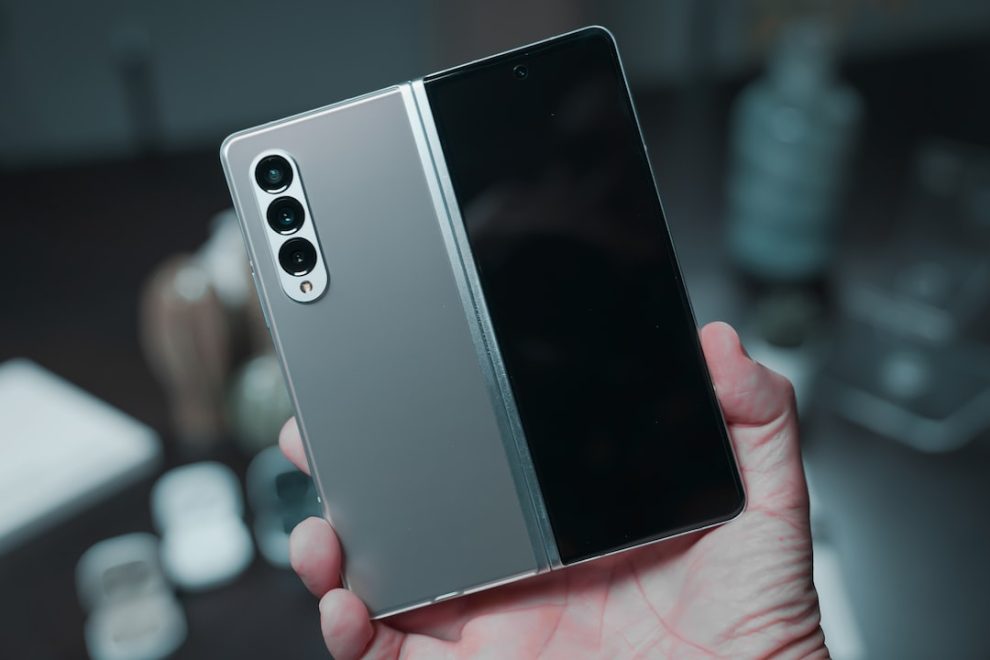Samsung Electronics is a global leader in technology and innovation, known for its cutting-edge products and groundbreaking advancements. With a rich history spanning over decades, Samsung has consistently pushed the boundaries of what is possible in the tech industry. From smartphones to smart home devices, from wearables to virtual reality, Samsung has been at the forefront of technological advancements, shaping the way we live and interact with technology.
In this article, we will explore Samsung Electronics’ latest innovations and their significance in the tech industry. We will delve into the rise of 5G technology and Samsung’s contribution to its development. We will also discuss Samsung’s vision for the future of smart home technology, its latest offerings in wearable technology, its innovations in artificial intelligence, and its latest mobile devices. Additionally, we will explore Samsung’s role in the development of virtual reality, its advancements in display technology, and its commitment to sustainability. Finally, we will look at Samsung’s predictions for the future of technology and its plans for future innovations.
Samsung Electronics’ Latest Innovations: An Overview
Samsung Electronics has consistently been at the forefront of technological advancements, introducing innovative products and technologies that have revolutionized various industries. From smartphones to televisions, from home appliances to wearables, Samsung has continuously pushed the boundaries of what is possible.
One of Samsung’s latest innovations is the Galaxy S21 series. The Galaxy S21, S21+, and S21 Ultra are packed with cutting-edge features and powerful performance. They boast stunning displays with adaptive refresh rates, powerful processors, and advanced camera systems that allow users to capture professional-quality photos and videos. The Galaxy S21 series also supports 5G connectivity, enabling users to experience lightning-fast download speeds and seamless streaming.
Another notable innovation from Samsung is its line of QLED and MicroLED displays. These displays offer vibrant colors, deep blacks, and incredible clarity. The QLED displays utilize quantum dot technology to deliver a wide color gamut and excellent brightness levels. On the other hand, MicroLED displays offer even greater picture quality and flexibility, with self-emissive pixels that provide true blacks and infinite contrast ratios.
Samsung has also made significant advancements in the field of artificial intelligence (AI). Its virtual assistant, Bixby, is powered by AI and can perform a wide range of tasks, from answering questions to controlling smart home devices. Samsung has also introduced AI-powered devices, such as the Samsung Bot Handy, which can help with household chores and tasks.
The Rise of 5G Technology: Samsung’s Contribution
5G technology is the next generation of wireless connectivity, promising faster speeds, lower latency, and greater capacity. Samsung has played a crucial role in the development and deployment of 5G technology, contributing to its widespread adoption.
Samsung has been actively involved in the development of 5G standards and technologies. The company has been a key player in various standardization organizations and has contributed to the development of 5G standards such as 3GPP. Samsung has also been at the forefront of research and development in 5G technologies, investing heavily in research and collaborating with industry partners.
In addition to its contributions to the development of 5G standards, Samsung has also been manufacturing 5G-enabled devices. The Galaxy S21 series, for example, supports 5G connectivity, allowing users to experience the full potential of 5G networks. With 5G-enabled devices, users can enjoy faster download speeds, smoother streaming, and enhanced gaming experiences.
The Future of Smart Home Technology: Samsung’s Vision
Smart home technology is revolutionizing the way we live, making our homes more convenient, efficient, and secure. Samsung has a clear vision for the future of smart home technology and has been introducing innovative products and services to bring this vision to life.
Samsung’s smart home ecosystem is centered around its SmartThings platform, which allows users to control and monitor their smart home devices from a single app. With SmartThings, users can control their lights, thermostats, security cameras, and more, all from their smartphones or other connected devices.
Samsung has also introduced a range of smart home devices that seamlessly integrate with the SmartThings platform. These devices include smart refrigerators, washing machines, air conditioners, and robot vacuums. These devices offer advanced features such as voice control, remote monitoring, and energy efficiency.
Furthermore, Samsung has been working on integrating AI into its smart home ecosystem. The company’s virtual assistant, Bixby, can be used to control smart home devices using voice commands. Bixby can also learn user preferences and make personalized recommendations for a more intuitive and seamless smart home experience.
The Evolution of Wearable Technology: Samsung’s Latest Offerings
Wearable technology has become increasingly popular in recent years, with devices such as smartwatches and wireless earbuds gaining widespread adoption. Samsung has been at the forefront of this evolution, introducing innovative wearable devices that combine style, functionality, and advanced features.
One of Samsung’s latest offerings in wearable technology is the Galaxy Watch series. The Galaxy Watch combines the functionality of a traditional watch with the features of a smartwatch. It offers a range of health and fitness tracking features, including heart rate monitoring, sleep tracking, and workout tracking. The Galaxy Watch also allows users to receive notifications, make calls, and access apps directly from their wrists.
Samsung has also introduced the Galaxy Buds series, wireless earbuds that offer high-quality sound and seamless connectivity. The Galaxy Buds feature noise cancellation technology, allowing users to enjoy their music without any distractions. They also offer touch controls for easy navigation and are compatible with both Android and iOS devices.
The Power of Artificial Intelligence: Samsung’s Innovations

Artificial intelligence (AI) has the potential to revolutionize various industries, from healthcare to transportation, from entertainment to customer service. Samsung has recognized the power of AI and has been incorporating it into its products and services to enhance user experiences.
One of Samsung’s notable innovations in AI is its virtual assistant, Bixby. Bixby is an intelligent assistant that can perform a wide range of tasks, from answering questions to controlling smart home devices. Bixby can understand natural language and context, allowing users to interact with it in a more conversational manner. It can also learn user preferences and make personalized recommendations.
Samsung has also introduced AI-powered devices that leverage the power of machine learning and deep learning algorithms. For example, the Samsung Bot Handy is a robotic assistant that can help with household chores and tasks. It can recognize and pick up objects, pour drinks, set the table, and even clean up after meals. The Bot Handy uses AI to understand its surroundings and perform tasks with precision.
The Future of Mobile Devices: Samsung’s Latest Releases
Mobile devices have become an integral part of our lives, allowing us to stay connected, work on the go, and access information at our fingertips. Samsung has been at the forefront of mobile device innovation, introducing new features and technologies that enhance user experiences.
One of Samsung’s latest releases in the mobile device category is the Galaxy S21 series. The Galaxy S21, S21+, and S21 Ultra offer powerful performance, stunning displays, and advanced camera systems. They also support 5G connectivity, allowing users to experience faster download speeds and seamless streaming. The Galaxy S21 series also features innovative features such as an adaptive refresh rate display, which automatically adjusts the screen refresh rate based on the content being viewed for optimal battery life.
Another notable release from Samsung is the Galaxy Z Fold2, a foldable smartphone that offers a unique and versatile form factor. The Galaxy Z Fold2 features a large, flexible display that can be folded in half, allowing users to switch between a smartphone and a tablet-like experience. The device also offers multitasking capabilities, allowing users to run multiple apps simultaneously on the larger display.
The Role of Samsung in the Development of Virtual Reality
Virtual reality (VR) is an immersive technology that allows users to experience virtual environments and interact with them in a realistic way. Samsung has been actively involved in the development of VR technology, introducing innovative devices and platforms that have helped popularize VR.
One of Samsung’s notable contributions to VR is its Gear VR headset. The Gear VR is a virtual reality headset that works in conjunction with Samsung smartphones. Users can simply attach their smartphones to the headset and immerse themselves in virtual reality experiences. The Gear VR offers a wide range of content, including games, videos, and educational experiences.
Samsung has also collaborated with Oculus, a leading VR company, to develop the Samsung Odyssey VR headset. The Odyssey VR headset offers a high-resolution display, built-in headphones, and motion controllers for a more immersive VR experience. It is compatible with Windows Mixed Reality, allowing users to access a wide range of VR content.
The Advancements in Display Technology: Samsung’s Latest Breakthroughs
Display technology has come a long way in recent years, with advancements in resolution, color accuracy, and form factors. Samsung has been at the forefront of these advancements, introducing innovative displays that offer stunning visuals and immersive experiences.
One of Samsung’s latest breakthroughs in display technology is its QLED displays. QLED stands for Quantum Dot Light Emitting Diode and refers to a display technology that utilizes quantum dots to enhance color accuracy and brightness levels. QLED displays offer vibrant colors, deep blacks, and excellent brightness levels, making them ideal for gaming, watching movies, and viewing photos.
Samsung has also been working on developing MicroLED displays, which offer even greater picture quality and flexibility. MicroLED displays use microscopic LEDs to create images, allowing for self-emissive pixels that provide true blacks and infinite contrast ratios. MicroLED displays also offer high brightness levels and wide viewing angles, making them suitable for a wide range of applications, from televisions to digital signage.
The Significance of Sustainability in Samsung’s Latest Innovations
Sustainability has become an increasingly important consideration in the tech industry, with consumers and companies alike recognizing the need to reduce their environmental impact. Samsung has made sustainability a priority in its latest innovations, introducing eco-friendly products and initiatives.
Samsung has been working towards reducing its carbon footprint and promoting sustainable practices throughout its supply chain. The company has set ambitious goals to reduce greenhouse gas emissions, increase energy efficiency, and promote responsible sourcing of materials. Samsung has also implemented recycling programs to ensure the proper disposal and recycling of its products.
In terms of product design, Samsung has introduced eco-friendly features in its devices. For example, its smartphones and tablets are designed to be more energy-efficient, with features such as adaptive brightness and power-saving modes. Samsung’s home appliances also feature energy-saving technologies, such as inverter compressors in refrigerators and eco-drum clean technology in washing machines.
The Future of Technology: Samsung’s Predictions and Plans
Samsung has a clear vision for the future of technology and has made predictions about the direction it will take in the coming years. The company believes that technology will become even more integrated into our daily lives, with advancements in AI, IoT, and connectivity.
Samsung predicts that AI will play a central role in the future of technology, enabling more personalized and intuitive experiences. The company envisions a future where AI-powered devices will anticipate our needs and seamlessly integrate into our daily routines. Samsung is investing heavily in AI research and development to bring this vision to life.
Samsung also believes that the Internet of Things (IoT) will continue to grow, with more devices and objects becoming connected. The company envisions a future where our homes, cars, and cities are all connected, creating a seamless and intelligent ecosystem. Samsung is actively working on developing IoT platforms and solutions to enable this interconnected future.
In terms of connectivity, Samsung predicts that 5G technology will become more widespread, enabling faster speeds and lower latency. The company believes that 5G will revolutionize various industries, from healthcare to transportation, from entertainment to manufacturing. Samsung is committed to driving the adoption of 5G technology and is actively working on developing new 5G-enabled devices and solutions.
Samsung Electronics has consistently been at the forefront of technological advancements, introducing innovative products and technologies that have revolutionized various industries. From smartphones to smart home devices, from wearables to virtual reality, Samsung has been shaping the way we live and interact with technology.
In this article, we explored Samsung Electronics’ latest innovations and their significance in the tech industry. We discussed Samsung’s contributions to the development of 5G technology and its 5G-enabled devices. We also explored Samsung’s vision for the future of smart home technology, its latest offerings in wearable technology, its innovations in artificial intelligence, and its latest mobile devices. Additionally, we discussed Samsung’s role in the development of virtual reality, its advancements in display technology, and its commitment to sustainability. Finally, we looked at Samsung’s predictions for the future of technology and its plans for future innovations.
Samsung Electronics continues to push the boundaries of what is possible in the tech industry, driving innovation and shaping the future of technology. With its commitment to excellence, sustainability, and user-centric design, Samsung is poised to continue leading the way in technological advancements for years to come.
















Add Comment